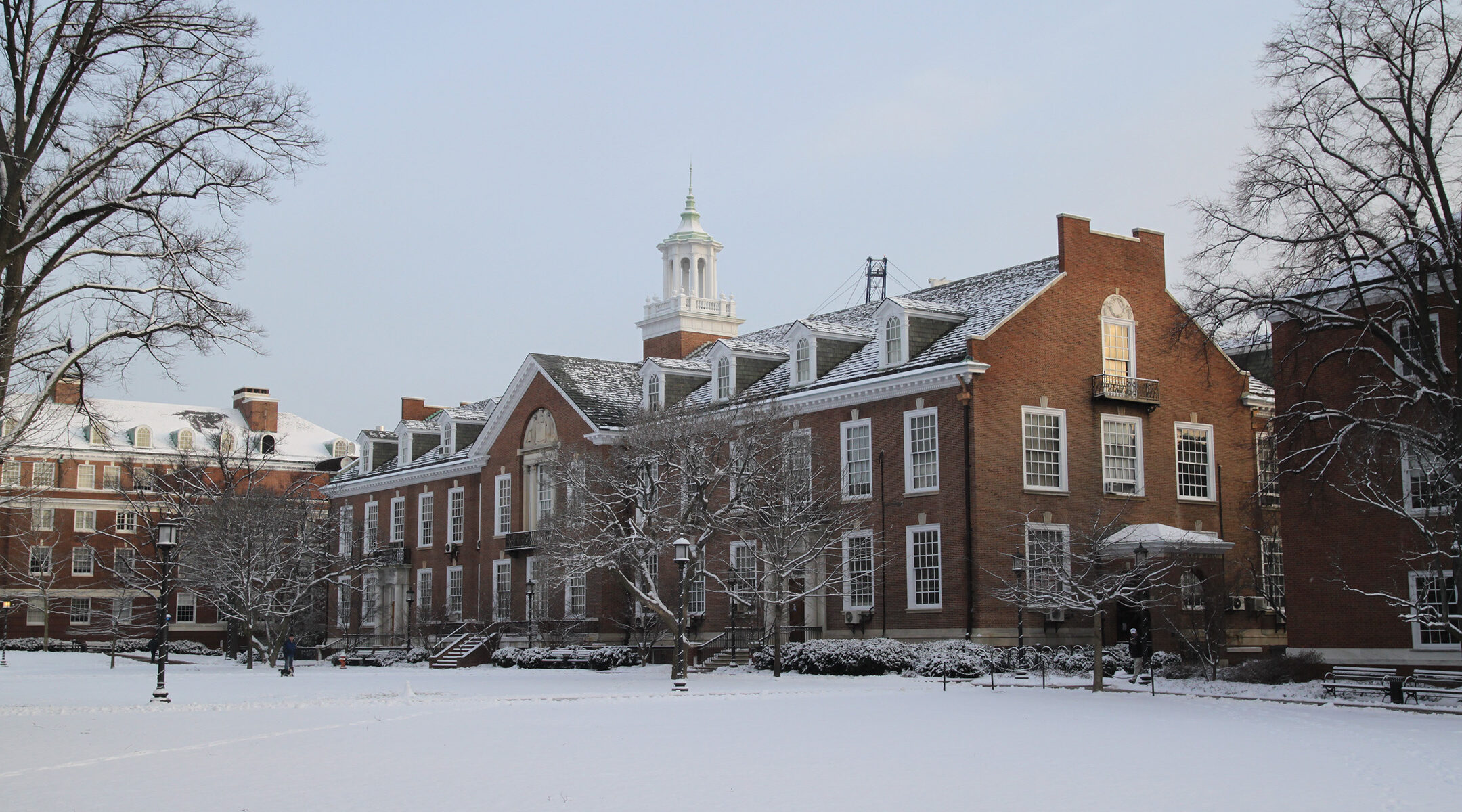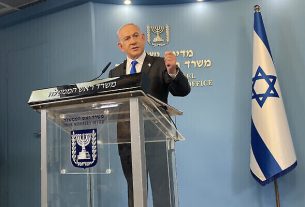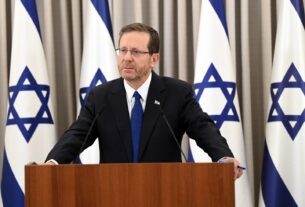((JEWISH REVIEW)) — Since the start of the Israel-Hamas war, open letters calling for a ceasefire have been one of the most common ways for thousands of academics, from Boston to Los Angeles, to register their opposition to Israel’s military campaign in Gaza.
Now, two such statements are at the center of a new federal investigation of alleged antisemitism at Johns Hopkins University.
The Department of Education’s Title VI probe of the Baltimore school, announced Tuesday, focuses on two ceasefire calls that university personnel put out in the weeks after the war began. One came from a group of more than 120 Johns Hopkins faculty, the other from a union representing graduate students at the school.
Now, a right-wing activist who is unaffiliated with Johns Hopkins says those statements harmed Jewish students — triggering the federal investigation.
The investigation joins two other “shared ancestry” discrimination cases the department opened this week, at a Lutheran university in Washington state and a school district in Louisiana. Since the war began with Hamas’ Oct. 7 attack, the department has opened up 69 such investigations at institutions ranging from Ivy League schools to K-12 districts. A handful of cases have since closed.
The department’s Office of Civil Rights has said that opening an investigation does not mean it believes the case has merit. But such investigations can pressure universities to take extensive measures to protect Jewish students.
The investigations can also pit competing narratives of campus antisemitism and anti-Palestinian discrimination against each other. Other open investigations challenge whether schools can suspend students for chanting “From the river to the sea”; whether schools took enough action in response to anti-Israel statements and protests, and whether schools can be held responsible for pro-Palestinian rallies staged near their campuses.
As in a growing number of investigations, the trigger at Johns Hopkins was a complaint filed by Zachary Marschall, the Jewish editor-in-chief of the conservative college watchdog site Campus Reform. Marschall has filed around two dozen Title VI complaints to date; he says they are based on his conversations with Jewish students across the country, who are too scared to file complaints themselves. This case is his seventh to lead to an investigation.
As it is described on his website, Marschall’s Johns Hopkins complaint alleges that the university fostered an “unwelcome and unsafe” environment for Jewish students. He cites the ceasefire statements from the faculty and graduate student union.
The faculty statement, published Nov. 3 “in solidarity with Gaza,” states, “We condemn the horrific ongoing violence inflicted on the Palestinian people, and we urgently call for an end to the Israeli assault on the Gaza Strip.” While noting “the loss of Palestinian and Israeli lives,” the letter does not mention the Oct. 7 attacks or Hamas, instead drawing attention to the death toll from Israeli airstrikes.
The school’s anthropology department chair, Naveeda Khan, a co-author of the statement, told the student newspaper that the letter “wasn’t about trying to equally acknowledge or disacknowledge one side or the other,” instead trying to focus on “the humanitarian situation.”
A separate statement from the graduate student union, Teachers & Researchers United, condemns “the genocide and occupation of Palestinians.” Published in October, it cites the anti- and non-Zionist Jewish groups Jewish Voice for Peace and IfNotNow as guides, and says Palestinians have lived “under systemic apartheid” since 1948.
The statement, which Marschall’s complaint also cites, calls on Johns Hopkins to demand a ceasefire and to publish “records of past and ongoing monetary, research, and technology development efforts supporting the IDF and the continued occupation and oppression of Palestinians.”
In Marschall’s view, the faculty statement was especially galling because the Maryland branch of the Council on American-Islamic Relations, a Muslim rights group, endorsed it. CAIR, which is highly critical of Israel, is likewise a frequent target of pro-Israel activists’ criticism. Marschall wrote that the group’s praise “is indicative of an environment that is hostile and unsafe for Jewish students.”
CAIR branches have themselves filed Title VI complaints against other schools on behalf of Muslim students, triggering federal investigations. The White House condemned the group’s national director late last year after he expressed support for the Oct.7 attack.
Asked about the details of the complaint as described, a university spokesperson told the Jewish Telegraphic Agency in a statement that the school does “not yet have full details of the complaint” but that it would cooperate with the education department. The statement noted that there has been antisemitic graffiti on campus in the months since October.
“Johns Hopkins University abhors anti-Semitism and discrimination of any kind,” the statement said. “We strive to foster a safe, respectful, and inclusive environment for each member of our community.”
The school added that it is “guided by the principles of academic freedom and the right to free expression for every member of our community, including their right to protest, demonstrate and share their views,” but that “acts of hate or discrimination, including religious discrimination,” are “antithetical to the values of the university.”
In Marschall’s view, the faculty and graduate student statements should cross the line.
“Rape, hostage-taking, murder, and torture are not forms of political speech,” he told (JEWISH REVIEW) regarding the Johns Hopkins investigation, referencing atrocities committed by Hamas on Oct. 7. “Endorsing those things is not a legitimate political position in a civilized society. If universities are not going to step up and ensure Jewish students’ safety, then the Department of Education needs to step in and hold them accountable.”
The university’s Washington, D.C. campus is currently scheduled to host a book talk Feb. 29 with Sami Hermez, a professor at Northwestern University in Qatar who has praised the Oct. 7 attacks as “a significant moment in the psychological war.” Hamas gunmen killed 1,200 people and took several hundred hostage.
Johns Hopkins has also recently taken action against anti-Palestinian speech on campus: In December it suspended Dr. Darren Klugman, a Jewish medical school professor, and began investigating him, after he posted tweets calling all Palestinians “morally depraved” and “savage animals,” and calling for them to be murdered or displaced. “Time to reclaim every inch of Israel for Jews,” said one of his posts, published a day after the attacks.
The university spokesperson did not respond to questions about Klugman and Hermez.
The Department of Education’s two other new “shared ancestry” investigations this week concern Pacific Lutheran University, in the Seattle area, and Jefferson Parish Schools, a K-12 district in the greater New Orleans area. The department does not reveal the reasons for its investigations.
Requests for comment to both schools were not returned. Jefferson Parish Schools has faced federal investigations in the past related to alleged discrimination against Latino immigrant students.




